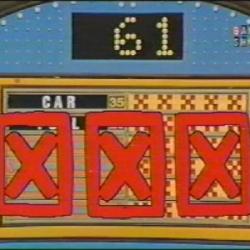The story of Pentecost in the second chapter of Acts presents a bona fide, according to Hoyle miracle. Believers have gathered from “every nation under heaven,” but when the Spirit comes no one gets left out. Everyone begins to hear one another and to hear the good news in their own language:
Amazed and astonished, they asked, “Are not all these who are speaking Galileans? And how is it that we hear, each of us, in our own native language? Parthians, Medes, Elamites, and residents of Mesopotamia, Judea and Cappadocia, Pontus and Asia, Phrygia and Pamphylia, Egypt and the parts of Libya belonging to Cyrene, and visitors from Rome, both Jews and proselytes, Cretans and Arabs — in our own languages we hear them speaking about God’s deeds of power.”
It’s a beautiful moment, but not everyone is impressed: “But others sneered and said, ‘They are filled with new wine.'”
That’s always how it goes when the Spirit brings unity that encompasses others who haven’t previously been included — people we’ve never even been able to talk to before. That frightens some people and they get upset. They can’t bring themselves to listen to people they’ve never been able to listen to before, or to include people from places they’ve never been. So they mock what they don’t understand. “You’re drunk on the cheap stuff,” they say. “You’re being foolish and reckless.”
The most important thing about this story from the second chapter of Acts is that Acts does not end with the second chapter. Pentecost is the beginning of the story, not the end. It’s an arrow pointing in a direction that even all those Galileans and Elamites and Phrygians who accepted the miracle didn’t yet fully understand. These devout believers were “amazed and perplexed, saying to one another, ‘What does this mean?'”
The story that unfolds over the following chapters shows these believers — even the apostles themselves — struggling to follow the arrow and to grasp “What does this mean?” Every nation? Everyone? Really, though, like, by “everyone” do we really mean everyone? Surely we have to draw some lines somewhere, right?
It takes them the rest of the book to fully understand that everyone means everyone. And with every halting step in the direction of that arrow the disciples are again amazed and perplexed, worrying over each new thing and even accusing one another — like those first skeptics back in Chapter 2 — of acting like drunken fools.
Part of what the disciples were struggling with, I think, was the mistaken idea that Pentecost had to be a zero-sum game. If we start letting in the Pamphylians and Cyrenians, then won’t we have to kick somebody else out to make room? That seems logical. If everybody else gets in, then how can there be any room left for us? If those 5,000 people all get to eat, then the loaves and fishes will all be gone before we get to have any.
But as the story alluded to there shows, that’s not how Pentecost works. It’s not a zero-sum game. It’s not musical chairs. Everybody means everybody. And “everybody else” doesn’t mean anything because there is no “else.”

Getting over that idea of a zero-sum game is, as the book says, perplexing. The idea is always lurking somewhere in the back of our minds, so when we see new groups being welcomed or included or defended, we reflexively worry that it might mean we ourselves might soon cease to be welcomed and included and defended. So we tend to freak out a bit when somebody like Philip — my favorite character in the book of Acts — gets rip-roaring drunk on the new wine of Pentecost and starts racing around, embracing Samaritans and sorcerors and queer black guys from the ends of the earth. We get stuck in zero-sum thinking and so we get scared and we want to go back to drawing lines and boundaries, excluding others so that we won’t have to worry about losing our own place.
That’s not the only thing happening. Sometimes we just convince ourselves to hate strangers and strange folks. Sometimes their presence reminds us we’ve wronged them — reminds us of our unaddressed guilt — and we resent having them around. Sometimes we’re dumb enough to think life is a game of musical chairs and we’ve got a shot at winning.
I think, though, that this fear rooted in zero-sum thinking always plays some part. When we get caught up in that fear we think we want to see others excluded so that we’ll feel less afraid, more secure in keeping our place. That’s what we think we want to see, but if we get that wish, we only become more afraid. Exclusion is, after all, the very thing we’re afraid of. Seeing it applied — even to someone else, even to the someone else we demanded and thought we wanted to see excluded — only heightens that fear that we, ourselves, may one day be excluded. We become ever-more convinced that “everyone” is going to wind up meaning everyone except me.
Fear makes us test that theory. They may be saying “everyone means everyone,” but surely that can’t be true. Surely someone is going to end up left out and left behind and left on their own, with nothing, and I don’t want it to be me. So we put it to the test by demanding clear lines and boundaries. OK, we say, we’ll accept the Parthians, Medes, and Elamites, but not the Cretans and Arabs. We’ll take the lame, but not the lepers. We’ll welcome the geeks, but not the freaks. And then we wait to see if they’ll accept this bargain, confirming our fear that everyone cannot possibly mean everyone.
So the only way to get past that fear — to get ourselves past it, and to help others to get past it as well — is to refuse any such zero-sum bargain and zero-sum thinking. We demonstrate that everyone means everyone, that no one will be left out or left behind. Including you and including me. Really. So none of us needs to be afraid.
Showing that — proving that — can go a long way to relieve the insecurity that makes us want, or think we want, to keep drawing lines and excluding people. It’s perplexing, but it’s also amazing. It’s a miracle.












